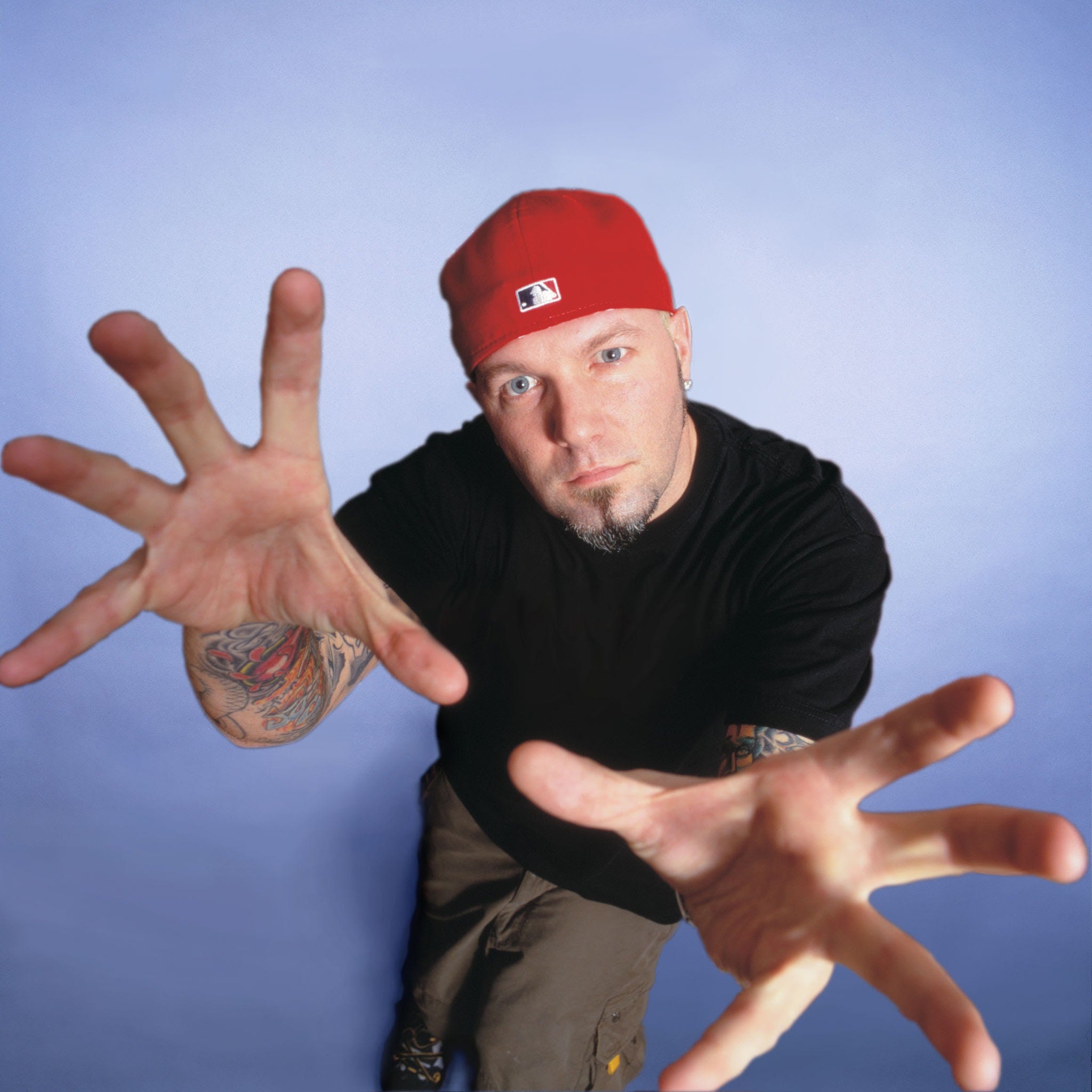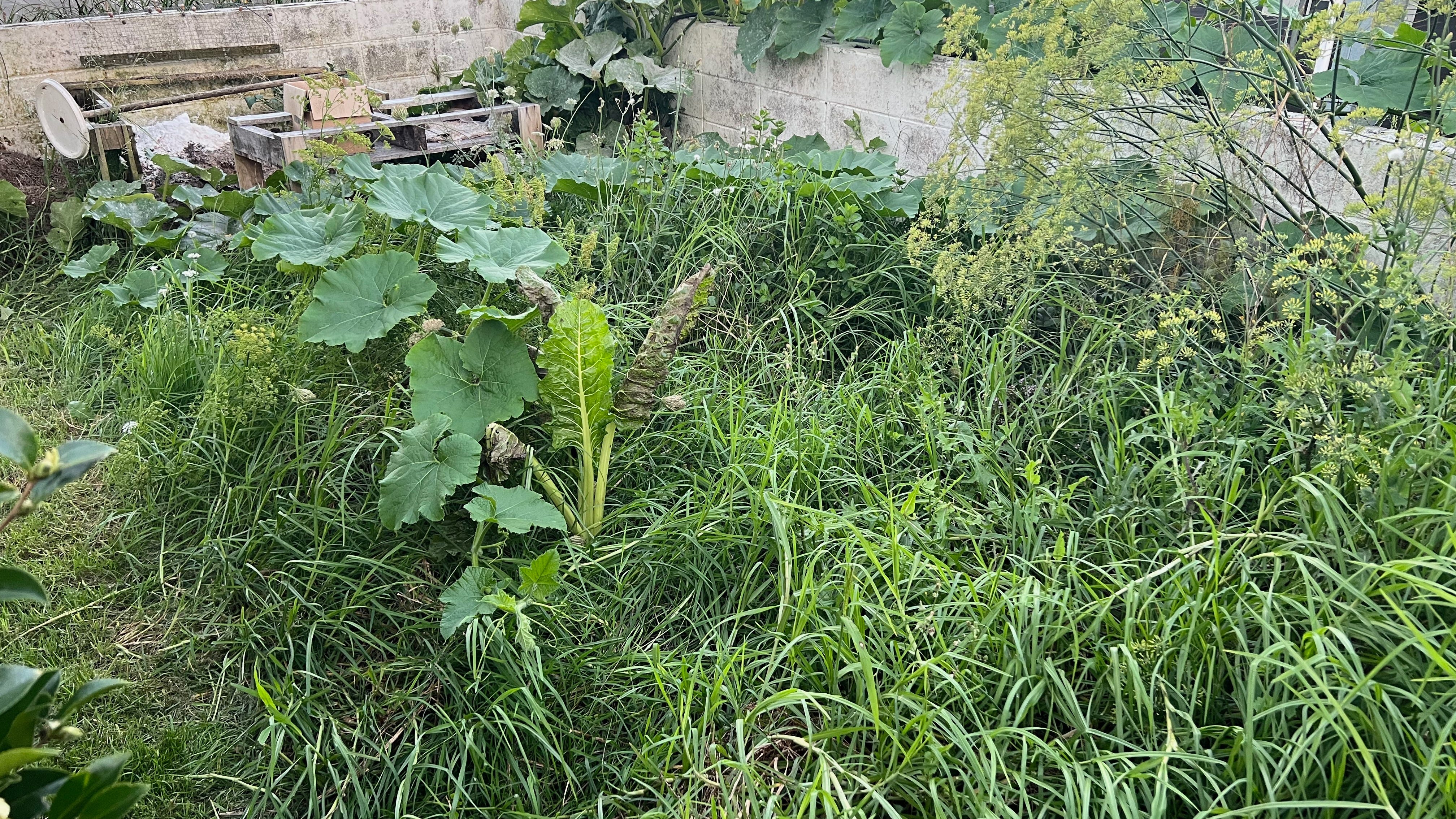It's just one of those days when you don't wanna write stuff
Remember Limp Bizkit? You do now.
Yesterday was a bit shit, to be honest.
It started with bad news, not the sort that’s really bad, but the kind that can still send you hurtling over the handlebars of life. Worse, it’s not something I can talk about, except for dropping dark hints that there’s something I can’t talk about.
Then I cooked up what should have been a delicious dinner from scratch only to realise — at the nearly done, time-to-taste-test stage — that the meat was bad, even though it had yet to pass its use-by date. All the veg tainted by association, all that time wasted.
I handled the first bad bit of the day like a champ, but the meal being ruined just about ruined me too. It’s funny how that works. You use up all your staunch and one relatively little thing sets you off.
After I finished retching over the sink, I decided, no, I’m not going to let this day be a total wash. The day was a bit shit, so maybe it’ll help to get shit done. Keep rollin, rollin, rollin, rollin.

Before I go on I just want to say thanks to David Farrier — and to you. After I talked about this project in David’s Webworm newsletter a truly surprising number of you subscribed. It’s really remarkable to see, and I’m grateful to either your vote of confidence in this ridiculous project or your morbid curiosity, whichever it was that prompted you to jump on board. And lots of you had exciting, insightful, profound, or hilarious comments about the state of self-improvement. Enough to fill another newsletter with, which might be the next one, actually. But for now, here’s today’s.
The mug’s game of measuring self-improvement
One of the problems with self-improvement is it’s often so hard to tell when one’s self actually improves.
Here’s a conjecture for you, one I’ve seen pretty often in self-improvement literature: We all have a mental and physical baseline — a mean to which we all tend to regress. Call it a comfort zone, if you like. If we strike out of our comfort zone once or twice, the baseline remains the same. Most of the time, it stays static, but it can move in response to consistent stimuli. If we’re improving, the baseline is shifting up.
I’ll word this purely in fitness terms so it makes sense and has a bit more science behind it. If you’ve got a smartwatch, you’ll be aware of your resting heart-rate. That’s your baseline, and, I assume, a decent indicator of your comfort zone. Of course, your heart rate goes up and down throughout the day. Do something a bit strenuous — climb some stairs quickly, or get a panic-inducing email — and it’ll go up. Rest, and it’ll go back to baseline.
But if you take up running, or swimming, or pretty much any sport that requires sustained effort, this baseline resting heart rate will decrease. As you get fitter, your heart gets more efficient.
This is a good thing but like most stuff in life it’s subject to the law of diminishing returns. You eventually hit a point where your heart rate probably can’t get any slower, and almost definitely shouldn’t, or else you’re getting into territory most commonly occupied by lizards or dead people, who (famously) have a resting heart rate of zero.
(For what it’s worth, according to my smartwatch, my average resting heart rate over the last month is 52 beats per minute. According to the hopefully-reliable first Google search result for “healthy heart rate for men by age”, this places me in the “athlete” range. As this post will make clear, I’m not very athletic, which makes me think that either my smartwatch is broken or I’m ill.)
All that said: a reduction in resting heart rate is, for most people, a good thing. It shows that your baseline has shifted. That you’re improving.
Unfortunately, for many things in self-improvement, it’s hard to establish this baseline. What’s more, your baseline also lives in your brain, mainfesting as whatever you’re used to. This can mean that while you may be improving, according to an objective measure — like heart rate — you don’t feel like you’ve improved, because as you improve, your baseline moves with you. And if you don’t feel like you’ve improved, is there a point?
I guess what I’m saying is no matter how much improvement I do, either by my own or other people’s measurement, it often feels like I… haven’t accomplished anything at all.
In my more cogent moments I know that this is one of those sly tricks many people’s brains must indulge in. And when I see very clearly, or I force myself to, like I’m doing now, I can see just how far things really have shifted. In the last few years, picking more or less at random, some accomplishments include:
- Getting promoted a few times
- Paying off my student debt
- Running a half-marathon
- Walking up some steep things and then coming back down
- Going back to university and studying in my spare time
- Saving more money than I’d ever managed to save in my life, only to spend it on…
- Buying a house (which is no small achievement in New Zealand, home of some of the world’s most rampant house price inflation around the time I bought)
- Oh and my wife and I had a really neat kid who’s now two years old, and if creating and keeping a human being alive and well doesn’t count as a step out of a comfort zone, I don’t know what does
Looking at that list, I do feel the glimmers of a warm glow of accomplishment in which I might bask, if I was that way inclined. But while certain baselines improved (career, financial) a few things slipped, including:
- Apart from spending far too much time on an NFT scheme I created as a joke, I almost stopped making art
- My fitness went from half-marathon-running level to very sedentary surprisingly quickly, and I put on a fair bit of baby weight
- My list of things to accomplish grows longer and seemingly less accomplished by the day, and this really eats at me.
I’m not any less keen to improve than I was when I first thought of this project, many years ago. There’s still so much I want to do. And I’d really like to be a lot fitter than I am right now, if only so I’m got a better chance of living longer and being a good dad to my boy.
So let’s assess where I am right now. What’s my baseline?
Fitter, happier, more pullups
I popped out to some monkey bars the other night and I was able to do one pullup from a dead hang. I might have been able to do more but I felt like if I tried something in my back might go pop. So that’s where I’m at.
I’m told that being able to do a pullup at all is a pretty good indicator of physical fitness, in the scheme of things, but I’d like to be able to do a lot more. In 2015, when I was under-employed and undergoing my first sustained self-improvement binge, I was able to do 30 pullups in a single exercise session. Three sets of ten. Not bad.
So I reckon that’d be a nice place to get back to. And, because I want to break new ground, not just go over what I did in the past, I’d like to get to a place where I can do one muscle-up.
Muscle-ups are famously hard. So if I can do one, I’ll know for sure I’ve improved well beyond my old, best baseline. They’re so difficult that a lot else will have had to have fallen into place for me to achieve one. If I can it’ll mean I’ve adopted a consistent and effective fitness regimen. (Please note that I wrote this, without irony, while eating the pizza we ordered to replace our ruined healthy meal). But my real priority is…
Make art
The real success metric of this project is: am I doing art?
I’ve had some art success in the past. I was selling prints, my YouTube art channel was slowly picking up a a few subs, I’d even gone a bit viral on Reddit from time to time. For whatever reason, this success induced avoidance. Of course, having a new baby around is a great reason to spend less time at an easel, but once things eased up with the infant and I started getting more than five hours sleep in a night I still didn’t make a return to art. Instead, I thought of reasons not to. This was a lot of work — as any hardcore procrastinator knows, avoiding things is incredibly taxing — and this was made worse by the fact that several lovely people who paid me for commissions were left wondering politely where the hell their promised painting was.
My theory, which may be entirely wrong, is that actually doing art will take up less mental energy and time than avoiding it. If I manage it, you’ll hear about it, shortly after my commission clients do.
Write stuff
The last measurement method will be: am I writing stuff?
I’m not sure this newsletter should count. I’d rather my improvement be measured in things that are not writing about self-improvement, which just seems a bit too onanistic. But I have another newsletter, where I write about media stuff, and there are plenty of other half-baked writings I’d like to finish cooking. Article pitches, other non-fiction pieces, even some fiction.
Welcome to the jungle
Oh and I just remembered the yard. Currently a lot of the yard looks like this:

I’d like it to look more like a garden and less like a backdrop for an heart-rending scene from The Last Of Us. So there you go, a special bonus goal.
The measure of what gets managed
So… I guess, since I’m doing this project in public, I’ll set up some SMART (Specific, Masochistic, Ambitious, Ridiculous, Terror-inducing) goals, and you can follow along with me as I achieve them, or not. I guess a public spreadsheet with a daily word and pullup counter will do the job. It’ll be like the running gag in Bridget Jones’ Diary where she writes down her calorie count daily, which in hindsight, was obviously a symptom of an eating disorder. Hmm.
So that’s something to look forward to: a spreadsheet with numbers in it. I bet you’re glad you signed up! If you feel like inflicting this happiness on others, you know what to do.
Feel free to jump in the comments and let me know if you’ve ever measured a goal like this, either privately, or in public, work or home or whatever. Or have you ever succeeded at something only to have your baseline shift, leaving you feeling like you’ve still fallen short? Or perhaps you’re more of a “warm glow of satisfaction” type. I’m keen to understand what has and hasn’t worked for other people, and if you’ve had some success, why not celebrate it?






